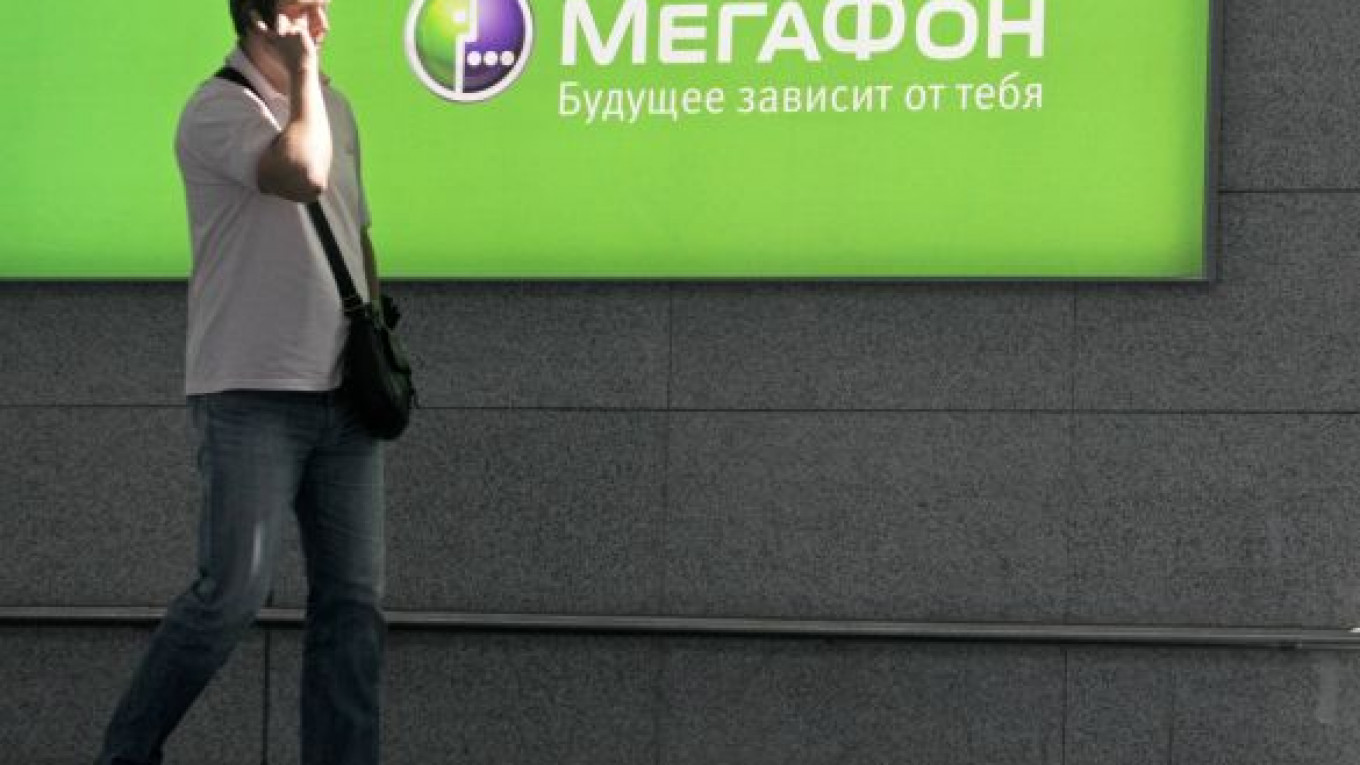MegaFon, Russia’s No.2 mobile operator, said it had agreed to borrow up to $2 billion from a group of banks, following reports that it could seek funds to buy back a one-quarter stake owned by Mikhail Fridman.
While it did not specify the purpose of the loan, Vedomosti reported this week that MegaFon wanted to borrow money to buy back a 25.1 percent stake owned by Altimo, part of Fridman’s Alfa Group.
MegaFon said Wednesday that it would borrow the money for six months from Citibank, BNP Paribas and Barclays, with an option to extend the loan by another six months.
Banking sources close to the deal told Reuters on Tuesday that MegaFon was considering a large syndicated loan to finance its stake purchase from Altimo.
Two of the three main shareholders in MegaFon — Altimo and Nordic group TeliaSonera, which owns 43.8 percent — have confirmed that talks are under way on MegaFon’s ownership.
Sources familiar with the matter say Alisher Usmanov, who owns a 31.1 percent stake, is interested in securing majority control of MegaFon and partnering with operator Scartel in next-generation mobile services.
Scartel holds a so-called fourth-generation license and is on the verge of launching services, while Russia’s top-three mobile-phone firms — MTS, MegaFon and VimpelCom — and long-distance operator Rostelecom have yet to secure enough spectrum to roll out full 4G services.
Bank of America Merrill Lynch said in a research note that Russia would in coming months hold a tender for Long Term Evolution, or 4G, licenses, in which the big-three mobile operators and Rostelecom should prevail.
Banking and industry sources say the up-front costs of 4G are likely to have prompted Fridman, widely regarded as more of a financial than a strategic investor, to sell his MegaFon stake, reported to be worth up to $5 billion.
TeliaSonera has declined to say whether it might reduce its stake, with a company source saying its main focus was on getting MegaFon to initiate dividend payments and improve its corporate governance structure.
Sources have said TeliaSonera could reduce its holding, paving the way for MegaFon to launch an initial public offering of shares that could raise more than $1 billion dollars later this year.
One banking source said the most cost-effective way for Usmanov to secure control would be for MegaFon, which has $1.5 billion in net cash on its balance sheet, to buy out Fridman.
Carrying a prudent amount of debt would also be positive for MegaFon’s tentative plans to launch the IPO, which could give the company a valuation comparable to MTS and VimpelCom, which are valued at $18 billion and $17 billion respectively.
According to reports and sources, the stake sale and IPO could be a prelude to an all-Russian merger between MegaFon and Rostelecom that could create a market leader in 4G services like mobile broadband Internet.
MegaFon had 61.6 million Russian mobile users at the end of 2011, while MTS and VimpelCom had 70 million and 57.2 million respectively. MegaFon’s sales last year were $8 billion.
Representatives for Usmanov, Fridman and TeliaSonera have declined to comment on the ownership talks.
A Message from The Moscow Times:
Dear readers,
We are facing unprecedented challenges. Russia's Prosecutor General's Office has designated The Moscow Times as an "undesirable" organization, criminalizing our work and putting our staff at risk of prosecution. This follows our earlier unjust labeling as a "foreign agent."
These actions are direct attempts to silence independent journalism in Russia. The authorities claim our work "discredits the decisions of the Russian leadership." We see things differently: we strive to provide accurate, unbiased reporting on Russia.
We, the journalists of The Moscow Times, refuse to be silenced. But to continue our work, we need your help.
Your support, no matter how small, makes a world of difference. If you can, please support us monthly starting from just $2. It's quick to set up, and every contribution makes a significant impact.
By supporting The Moscow Times, you're defending open, independent journalism in the face of repression. Thank you for standing with us.
Remind me later.






